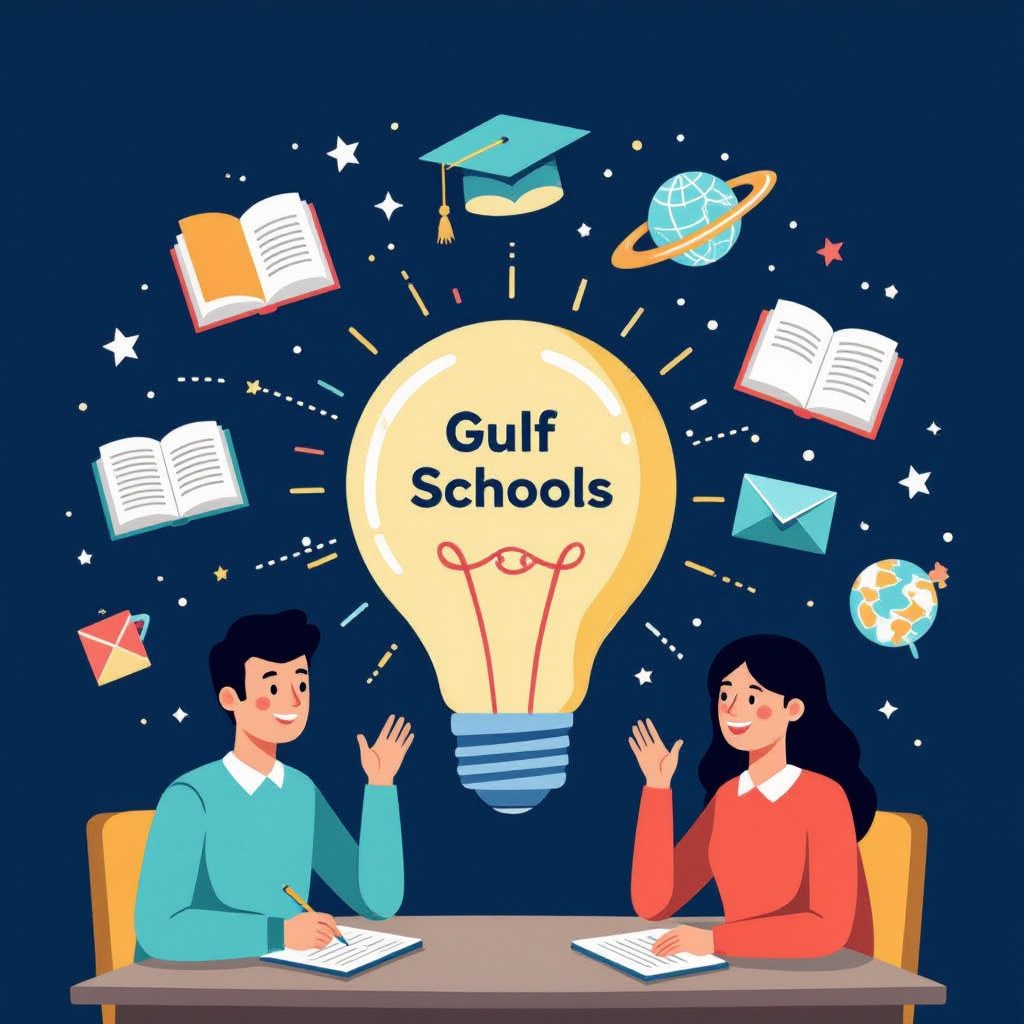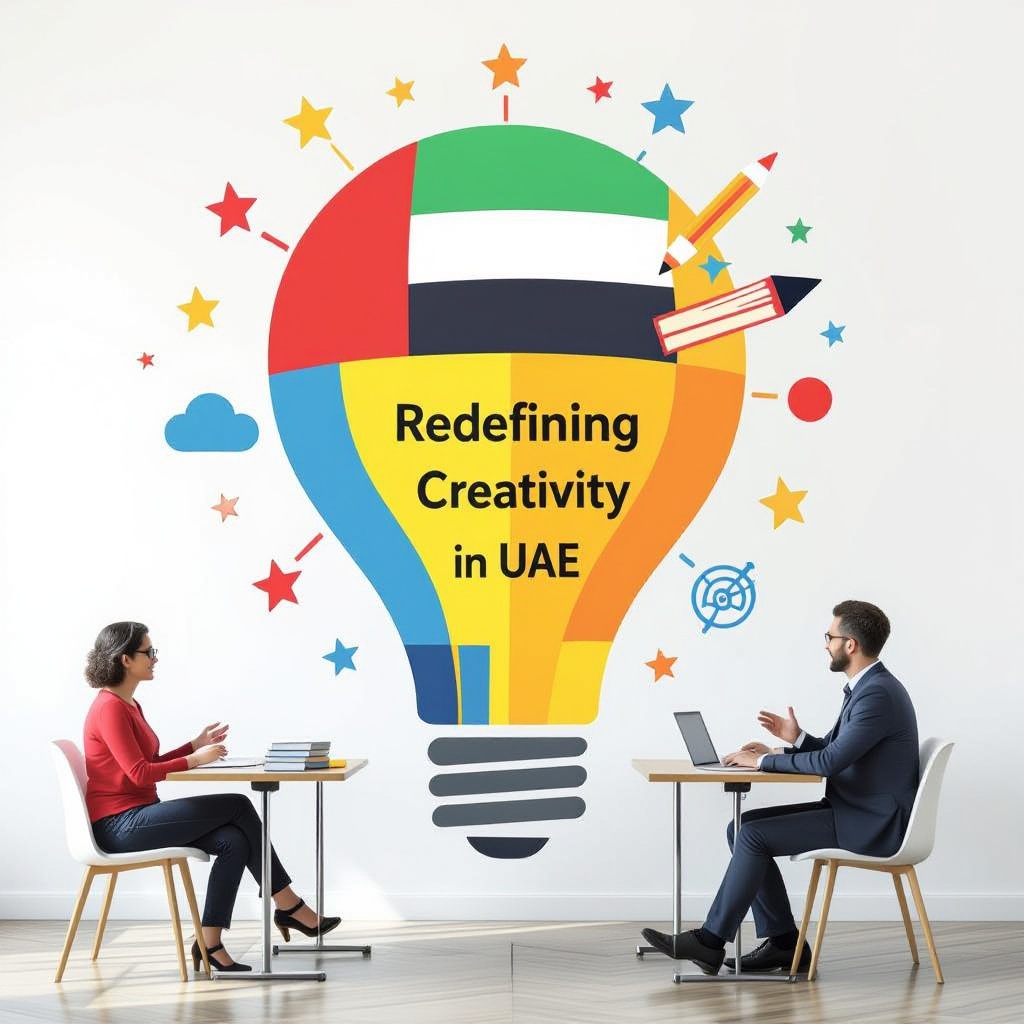Gulf schools are changing by emphasizing critical thinking and creativity. These skills are crucial for thriving in innovation-driven economies. This shift to skill-based learning aligns with international educational standards. Schools now integrate advanced technologies to create engaging and impactful learning experiences.
Key Takeaways
- Gulf schools give critical thinking and creativity the spotlight, alongside traditional subjects, to ready students for future hurdles.
- They focus more on active learning strategies with interactive, skill-enhancing activities replacing traditional lectures.
- Technology, including AI and digital platforms, is woven into curricula to enhance personalized and creative learning experiences.
- Teacher training emphasizes modern teaching methods to nurture critical and creative skills effectively.
- Curricular innovations, like problem-solving projects and cross-disciplinary work, encourage applying learned skills to real-world scenarios.
Gulf Schools Shift Focus: Critical Thinking and Creativity at the Forefront
Critical thinking and creativity are now taking center stage in Gulf education systems. Education leaders recognize these abilities are essential for thriving in our innovation-driven economies. This shift places them alongside traditional subjects, reflecting their international importance.
Tools like the California Critical Thinking Skills Test (CCTST) assess proficiency, shining a light on areas needing improvement, such as evaluation and numeracy. Teaching methods are evolving, moving away from pure lectures. Instead, schools are embracing active learning strategies. Digital platforms play a crucial role, encouraging decision-making and higher-order thinking.
What does this mean for students?
- Enhanced decision-making skills.
- Improved problem-solving techniques.
- Greater engagement through interactive learning.
Such changes ensure students are better equipped for the challenges of the 21st century. For more on creative learning approaches, check out resources from reputable organizations like the World Economic Forum.

Redefining Creativity in UAE Classrooms
Creativity is finally getting the attention it deserves in UAE schools, where it’s seen as essential for future career landscapes and individual development. Schools are embracing international guidelines, such as those from the OECD, to shape how creativity is taught and evaluated. Events like the OECD Creativity in Education Summit help spread the word about effective global practices.
Integrating cutting-edge technologies like artificial intelligence enables students to express themselves creatively while boosting engagement and wellbeing. These innovations are tailored to make learning both exciting and impactful.
To bring this into practice, educators employ rubrics to methodically assess and track creativity levels. This structured approach not only enhances educational outcomes but ensures students’ creative progression is on the right track.
For more insights into AI’s role in education, check out resources from authoritative sources like EdTech Digest.

A Comparative Lens: Trends Shaping Gulf Education
Critical thinking and creativity are making waves as ‘durable skills‘ in Gulf schools, recognized as essential for shaping well-rounded students. These skills aren’t just nice to have—they’re pivotal for academic success and adaptability in a rapidly changing world. By focusing on these areas, Gulf schools are setting students up for a future where flexibility and problem-solving are key.
One significant way Gulf education systems are emphasizing these skills is through frameworks like ‘Portrait of a Graduate.’ This approach doesn’t just look at test scores but evaluates a student’s diverse achievements. It provides a broader picture of student development, placing value on multidimensional success indicators.
Additionally, the influence of technology in education cannot be ignored. Edtech tools and artificial intelligence are becoming integral parts of the classroom. These technologies foster both creativity and critical thinking by providing interactive and personalized learning experiences. Gulf states are pouring resources into these tech areas, ensuring that their education systems remain competitive on the global stage.
Recent investments reflect a commitment to maintaining a strong presence in international educational rankings. By equipping schools with cutting-edge tools, Gulf states aim to deliver superior education. The blend of creative and critical thinking skills with advanced technologies can lead to enhanced learning outcomes. If you’re curious about how global trends are impacting education, check out this detailed insight on education transformation.
Instructional Innovations: Professional Development and Assessment
Teacher professional growth takes center stage in Gulf schools, focusing on equipping educators with global rubrics and cutting-edge teaching strategies like problem-based learning and media literacy. They’re not just adding tools—they’re changing how we teach. You’ve got these comprehensive assessments now, blending both qualitative and quantitative insights. They make the whole improvement process way more insightful.
Professional development syncs closely with enhancements in teaching quality and student skills. Here’s what’s happening:
- Educators learn international rubrics for effective evaluation.
- New strategies like problem-based learning encourage critical thinking.
- Media literacy training helps integrate real-world skills.
All this provides a strong base for implementing fresh teaching methodologies. These changes are shifting perspectives on how education should adapt. If you’re curious about how media literacy transforms teaching, check out the Media Literacy Project for more info.
Building a Future-Ready Educational Environment in the Gulf
Gulf schools are making waves with a clear shift to skills-based learning. They’re moving away from rote memorization strategies. This focus is paying off. We’re already seeing improved academic results and students who are more adaptable. To keep this positive trend going, pouring resources into teacher training, implementing new technologies, and refreshing the curriculum is vital.
I see Gulf schools gearing up to lead in education reform. They’re set on nurturing talent that can compete on a global stage. Here’s what they’re emphasizing:
- Teacher Training: Equipping educators with skills to teach creativity and critical thinking.
- Technology Integration: Using digital tools to boost interactive and engaging learning.
- Curriculum Innovation: Crafting course content that stimulates critical thinking and practical problem-solving.
For more about educational strategies and global trends, you might find UNESCO’s resources on education enlightening.
Key Takeaways: Actionable Strategies for Gulf Education
Gulf schools are shifting gears by prioritizing critical thinking and creativity, which is quite refreshing. This change is essential to ready students not just for local challenges but global leadership roles too. To achieve this, they’re adopting several practical strategies.
One of the most significant steps is curriculum innovation. Schools are reviewing and updating their programs to include more problem-solving projects and interactive lessons that challenge students to think differently. Cross-disciplinary projects are encouraged where students can apply skills from various subjects to solve real-world issues.
Teacher training is another focus area. Educators are being equipped with modern teaching methods that foster an open, engaging classroom environment. By attending workshops and seminars, they stay up-to-date with the latest educational trends and techniques. This gives them the tools to better guide students in developing critical and creative skills.
Technology adoption also plays a big role in this transformation. Schools are integrating digital tools such as learning management systems and interactive apps to promote an interactive learning experience. For instance, using platforms from leading educational tech companies like Khan Academy provides students with varied learning opportunities learn more here.
Setting clear targets helps in measuring progress. By establishing benchmarks for skill acquisition and regularly assessing student achievements, schools can ensure they stay on track. Through these strategic efforts, Gulf educators are setting a strong foundation for future leaders—one that is adaptable, creative, and ready for the challenges of tomorrow.

Frequently Asked Questions
🎓 Why are Gulf schools focusing more on critical thinking and creativity?
Gulf education leaders recognize that critical thinking and creativity are essential for success in innovation-driven economies. The shift aims to equip students with durable skills needed for problem-solving, decision-making, and global adaptability.
📚 How are teachers in the Gulf being prepared for this educational shift?
Educators are receiving upskilling through professional development programs focused on modern strategies like problem-based learning and media literacy. These initiatives enhance teaching quality and support the delivery of creativity and critical thinking lessons.
🧠 What tools and assessments are being used to measure critical thinking?
Gulf schools are incorporating assessments like the California Critical Thinking Skills Test (CCTST) to evaluate students’ analytical abilities. These tools help identify improvement areas such as numeracy and evaluation, supporting more targeted teaching approaches.
💡 How is creativity being encouraged in UAE classrooms?
Creativity is promoted through AI integration and international benchmarks like OECD rubrics. These tools allow students to express ideas more freely, enhance engagement, and ensure creativity is assessed in a structured way.
📱 What role does technology play in the transformation of Gulf education?
Educational technologies and AI tools are transforming how Gulf students learn by offering personalized and interactive experiences. These innovations foster both creativity and critical thinking in dynamic classroom environments.
🌍 How does this new education model prepare students for global success?
By teaching problem-solving, creativity, and critical thinking, Gulf schools are shaping future-ready graduates. These skills align with global expectations, positioning students to excel in both local and international arenas.
